emotions
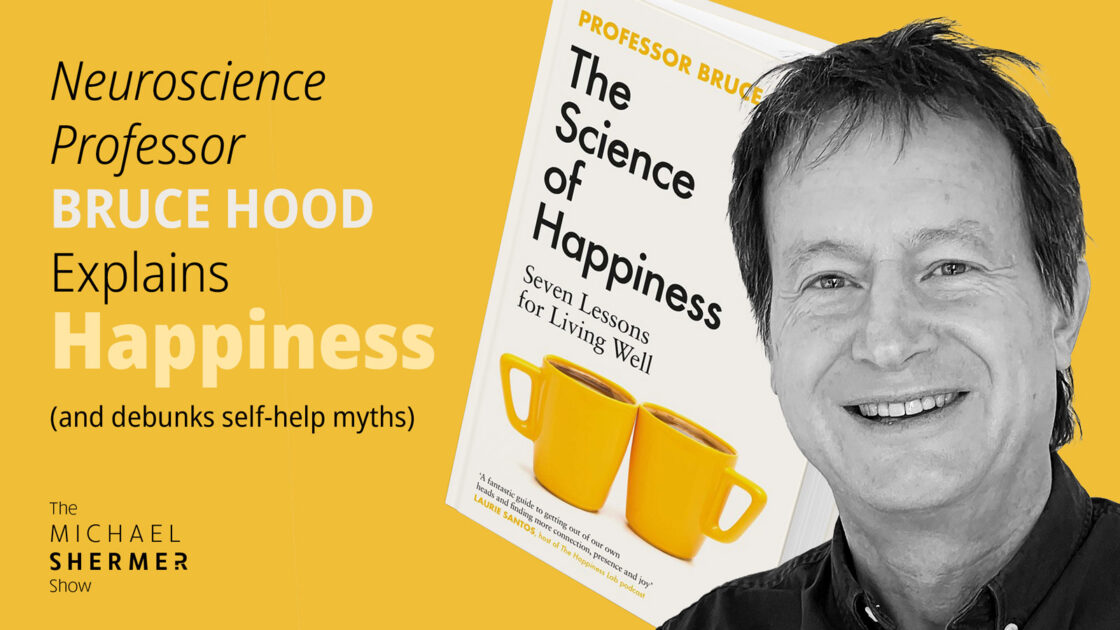
Shermer and Hood discuss: psychedelic drugs • defining the “good life” or “happiness” • measuring emotions • happiness as social contagion • eudaimonia (the pursuit of meaning) versus hedonism (the pursuit of pleasure) • genetics and heritability • cultural components • WEIRD people • The Big Five (OCEAN) • marriage and health • exercise and stress reduction • what the ancient Greeks got right about living the good life • how failure may actually be a key to more happiness…
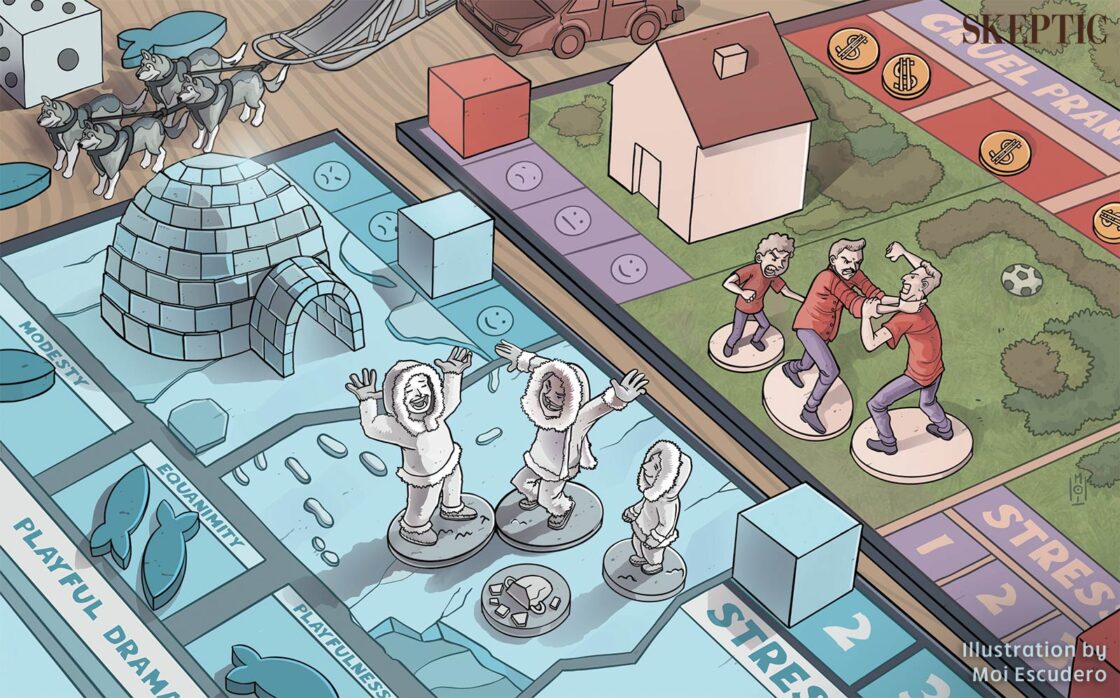
In the controversies surrounding campaigns to ban books from school libraries and publishers’ new policy of removing offensive words from classic books, most commenters focus on the nature of the books’ content and whether it’s appropriate for children of a certain age. In contrast, this essay focuses on the nature of stories and how concerned parents should think about them in the context of their children’s moral and social development.
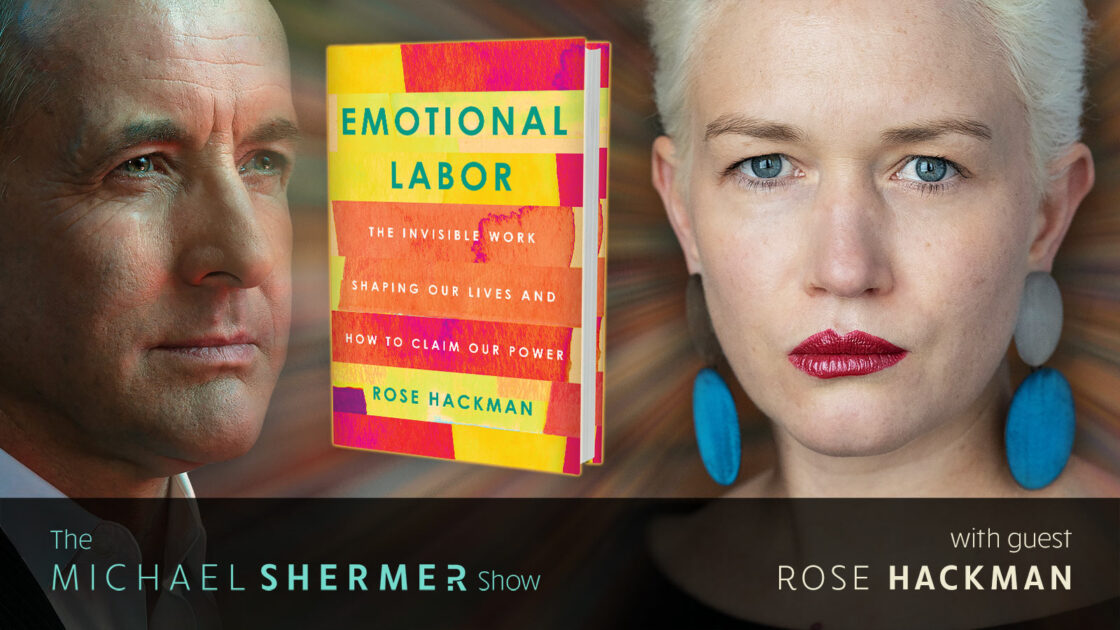
Shermer and Hackman discuss: • her journey to researching emotional labor • What is emotional labor? • sex/gender differences in emotions • equality vs. equity • income inequality between men and women • Richard Reeves’ book, Of Boys and Men • why women are more risk averse • sex and emotional labor • sex work and prostitution • pornography • #metoo • emotional capitalism • liberal vs. conservative attitudes about emotional labor and gender differences.
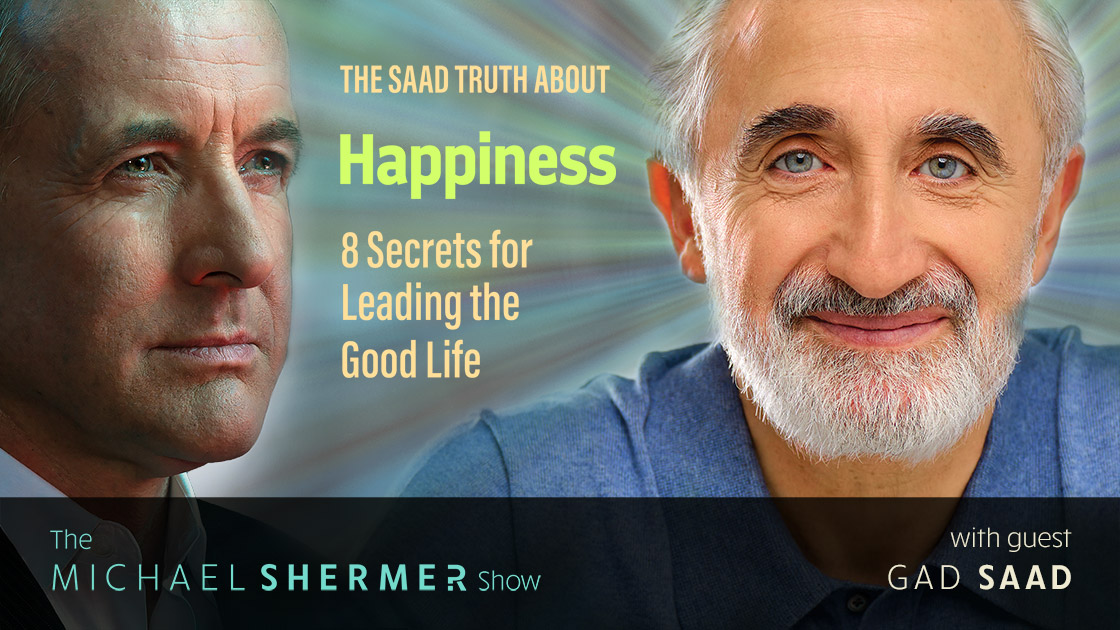
Shermer and Saad discuss: operational definitions of the “good life,” “happiness,” and “well being” • emotions • eudaimonia (the pursuit of meaning) versus hedonism (the pursuit of pleasure) • genetics and heritability • cultural components • the Big Five (OCEAN) • marriage (mate selection) • health • exercise and stress reduction • religion • anti-fragility • a playful outlook and curiosity • variety (the “spice of life”) • what the ancient Greeks got right about living the good life •…
While many essays have addressed the social events and psychological traits that drive polarized thinking, the neural underpinnings of uncertainty and polarization are largely unknown. We know the brain processes information and makes decisions, but we know little about how politically polarized information is encoded, and even less about how attitudes about uncertainty influence that processing. Why is it important? In this article Natasha Mott explains that uncertainty may be seen as a threat, which moves individuals toward certain positions…
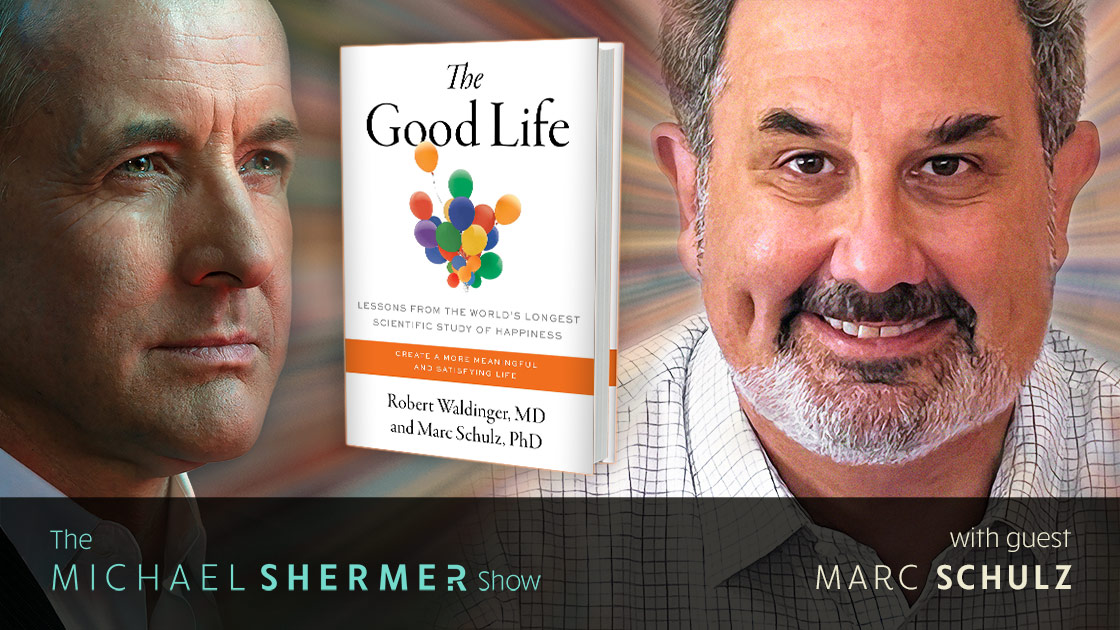
Shermer and Schulz discuss: an operational definition of the “good life” or “happiness” or “well being” • the reliability (or unreliability) of self-report data in social science • relative roles of genes, environment, hard work, and luck in how lives turn out • personality and to what extent it can be scientifically measured and studied • factors in early childhood that shape mental health in mid and late life • generational differences: • the impact of loneliness • misconceptions about happiness…
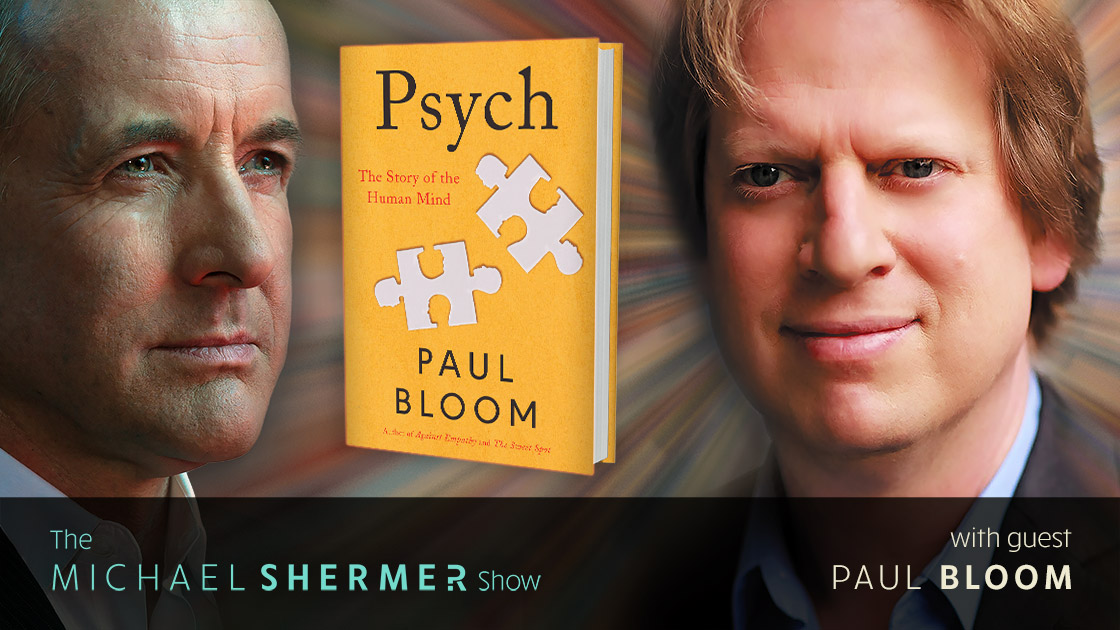
How does the brain — a three-pound gelatinous mass — give rise to intelligence and conscious experience? Was Freud right that we are all plagued by forbidden sexual desires? What is the function of emotions such as disgust, gratitude, and shame? Renowned psychologist Paul Bloom answers these questions and many more in this conversation based on his riveting new book about the science of the mind: Psych.
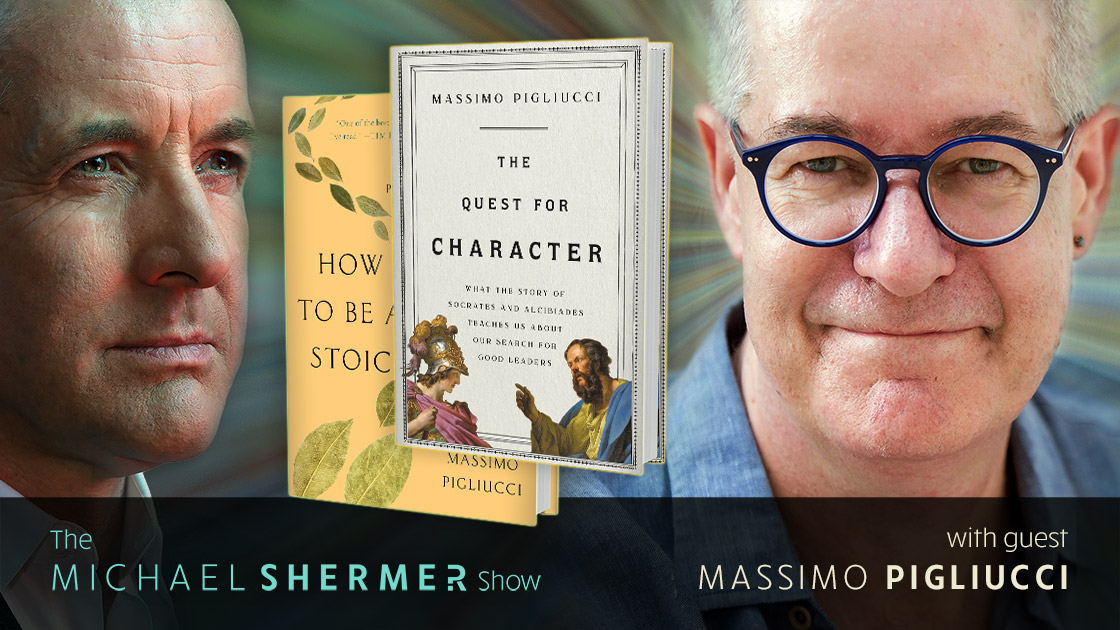
Shermer and Pigluicci discuss: his journey from Rome to New York • evolutionary biology • stoic philosophy • can there be a science of meaning and morality? • ultimate questions • desire, action, depression, suicide, anger, anxiety, love, and friendship • practical spiritual exercises • how to react to situations • teaching virtue to politicians • philosophy and politics • character and leadership • the nature of evil.
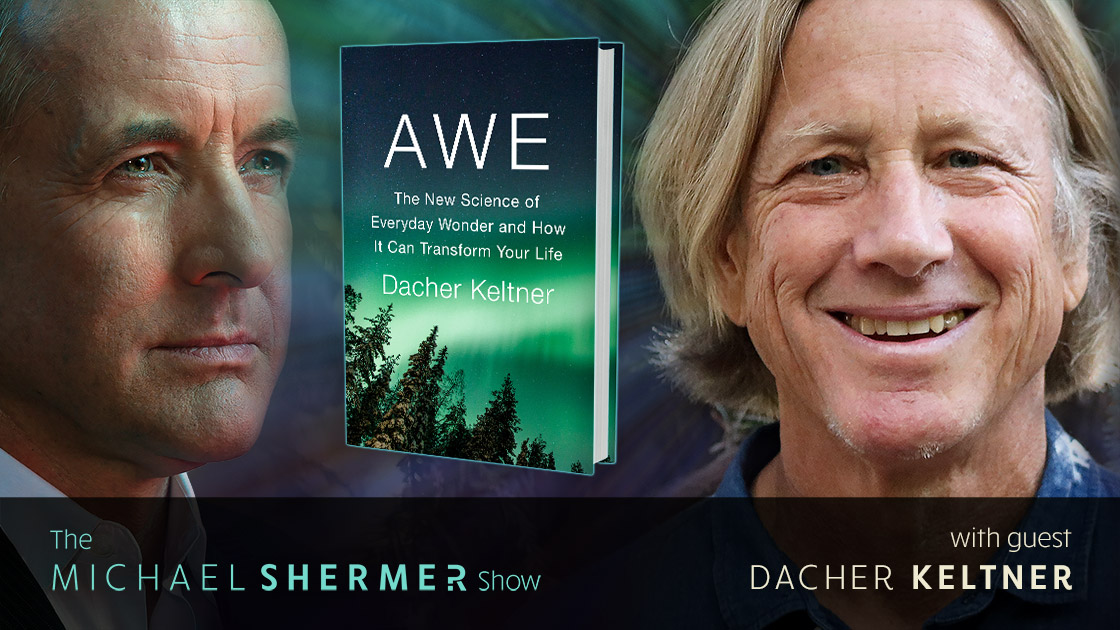
Shermer and Keltner discuss: the death of his brother and how this led to his study of awe • an operational definition of awe • the reliability (or unreliability) of self-report data in social science • how to quantify and measure the experience of awe • What are emotions and how can they be measured? • How has the scientific understanding of emotions changed? • predictors of awe: nature, music, art, dance, movement/exercise, love & friendships • awe in moral…
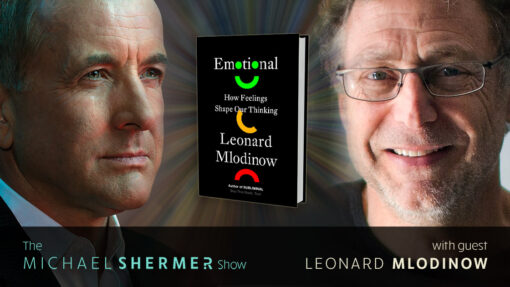
Extraordinary advances in psychology and neuroscience have proven that emotions are as critical to our well-being as thinking. In this conversation, Michael Shermer speaks with Leonard Mlodinow about his new book Emotional: How Feelings Shape Our Thinking.
Extraordinary advances in psychology and neuroscience have proven that emotions are as critical to our well-being as thinking. In this conversation, Michael Shermer speaks with Leonard Mlodinow about his new book Emotional: How Feelings Shape Our Thinking.
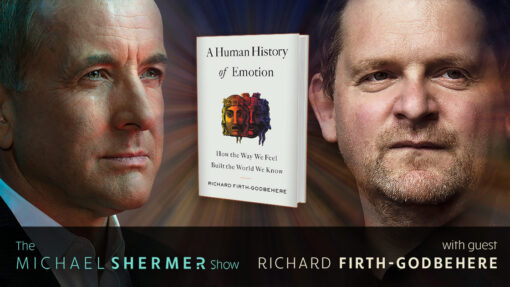
Michael Shermer speaks with Richard Firth-Godbehere his book A Human History of Emotion: How the Way We Feel Built the World We Know, drawing on psychology, neuroscience, philosophy, art, and religious history, and taking us on a fascinating tour of the central and often under-appreciated role emotions have played in human societies throughout history.
Michael Shermer is now writing on Substack with a new, weekly column called Skeptic: Examining the World Through a Scientific Lens. PLUS in a wide-ranging conversation Shermer and Richard Nisbett discuss Nisbett’s research showing how people reason, how people should reason, why errors in reasoning occur, and how much you can improve reasoning.
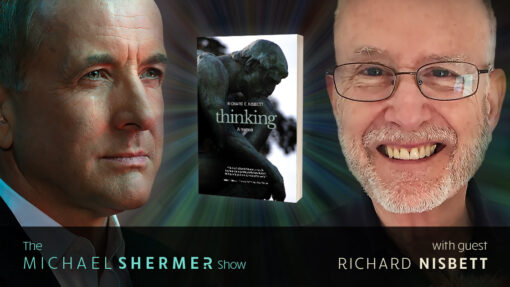
In a wide-ranging conversation Shermer and Richard Nisbett discuss Nisbett’s research showing how people reason, how people should reason, why errors in reasoning occur, and how much you can improve reasoning.
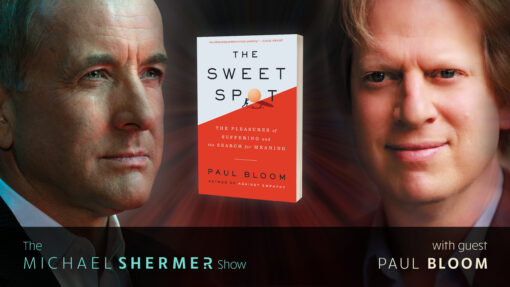
Why do we so often seek out physical pain and emotional turmoil? In episode 223, Michael Shermer speaks with professor of psychology Paul Bloom about the pleasures of suffering and the meaning of life, based on his book The Sweet Spot: The Pleasures of Suffering and the Search for Meaning.
Why do we so often seek out physical pain and emotional turmoil? In episode 223, Michael Shermer speaks with professor of psychology Paul Bloom about the pleasures of suffering and the meaning of life, based on his book The Sweet Spot: The Pleasures of Suffering and the Search for Meaning.
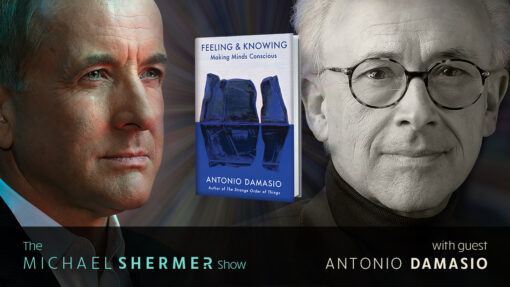
In episode 221, Michael Shermer speaks with Antonio Damasio about recent findings across multiple scientific disciplines that have given rise to new understandings of consciousness.
In episode 221, Michael Shermer speaks with Antonio Damasio about recent findings across multiple scientific disciplines that have given rise to new understandings of consciousness.

In episode 192, Michael speaks with husband-and-wife team Lesley Newson and Peter Richerson about the deep history of humankind discussed in their book, A Story of Us, in which they present this rich narrative and explain how the evolution of our genes relates to the evolution of our cultures.
In episode 192, Michael speaks with husband-and-wife team Lesley Newson and Peter Richerson about the deep history of humankind discussed in their book, A Story of Us, in which they present this rich narrative and explain how the evolution of our genes relates to the evolution of our cultures.
NEXT →






















